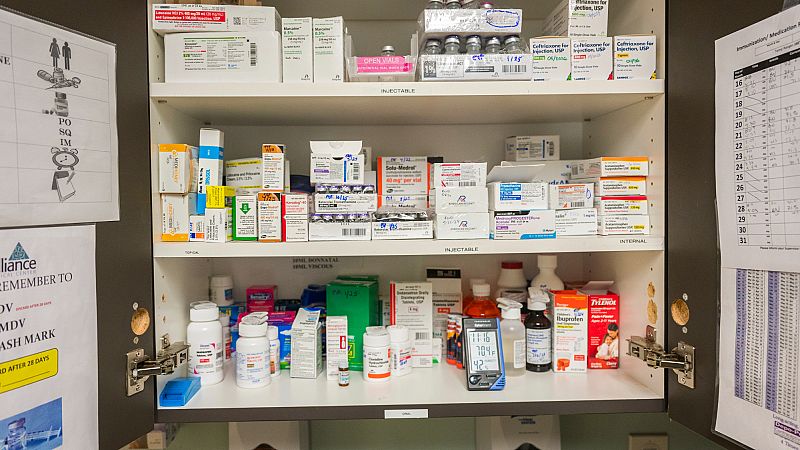EU medicine shortages at record levels, auditors report

Medicines shortages across the EU have grown in severity and reached record levels last year according to a Court of Auditors report published on Wednesday.
The report said that absence of a common framework to handle shortages and pan-EU compliance tools is worsening the situation.
“Medicine shortages are a persistent issue across the EU, and that's such still a chronic headache for the Union. But they have grown in frequency and severity, reaching record levels in 2023 and 2024," the ECA"s Klaus-Heiner Lehne told reporters while presenting the report.
He added that this poses a problem for patients, a challenge for health systems, and a sign of the EU’s strategic vulnerability in medicine supply.
Between 2022 and October 2024, national authorities reported 136 critical shortages to the European Medicines Agency (EMA), the report said.
In March this year, 34 medicines were in shortage, according to the EMA. Sixteen of these were included on the European Commission’s list of essential medicines.
A medicine can be placed on this list due to production issues, a surge in demand, or a manufacturer deciding to withdraw it from the market – any factor that limits supply either temporarily or permanently.
These shortages included drugs as essential as thrombolytics (used to treat heart attack or stroke patients), amoxicillin, and cyanide poisoning antidotes, among others.
The auditors emphasised that shortages cannot be solved at national level and that this is where EU action has so far fallen short.
The problem of fragmented data
"Efforts by the [European] Commission to tackle the underlying causes for shortages are there, but they are still at an early stage," said Lehne.
One of the main obstacles highlighted in the report is the fragmentation of data across the EU, including information on stock levels, shortage notifications and medicine approvals.
For example, each country sets its own rules for companies to notify regulators of a shortage. In Belgium, manufacturers can wait until the day a drug becomes unavailable. Just across the border in the Netherlands, they must give notice at least two months before they expect to be unable to deliver medicines within two weeks.
The process is even more complex as manufacturers notify their national authorities, who then notify the EMA.
"On top of this limitation, we found that reporting does not always work well in practice, is late or absent," stressed Lehne.
Slow EU response
In recent years, faced with a situation that is not improving, the European Union has put forward several proposals aimed to better prevent and mitigate shortages, namely the EU list of critical medicines and the Critical Medicines Act.
However, the auditors pointed out that these proposals lack enforcement mechanisms such as sanctions that would allow the Commission or EMA to ensure industry compliance with reporting obligations.
"You can only coordinate if you have the knowledge. That's the way it is,” said Matthias Blaas, from the ECA. "Each member state produces voluntarily different information. Some member states don't even produce information," he added.
While acknowledging that the proposals are a good first step, the report concluded that EU action remains insufficient.
The next package of pharmaceutical legislation, currently being discussed by health ministers in the Council, could impose more obligations on manufacturers to provide better data on their supply chains.
"Only when the proposals on table are adopted and implemented, the funding is there, then these projects will start and then it will still take a couple of years to really have an effect," stressed Blaas, warning shortages cannot be solved from one day to the next.
“We note that the Court calls for a stronger and more effective EU framework to prevent shortages”, a Commission spokesperson said reacting to the report, adding they are confident that their recent proposals “will make a substantial difference and address many of the challenges that the Court has outlined.”
Today

